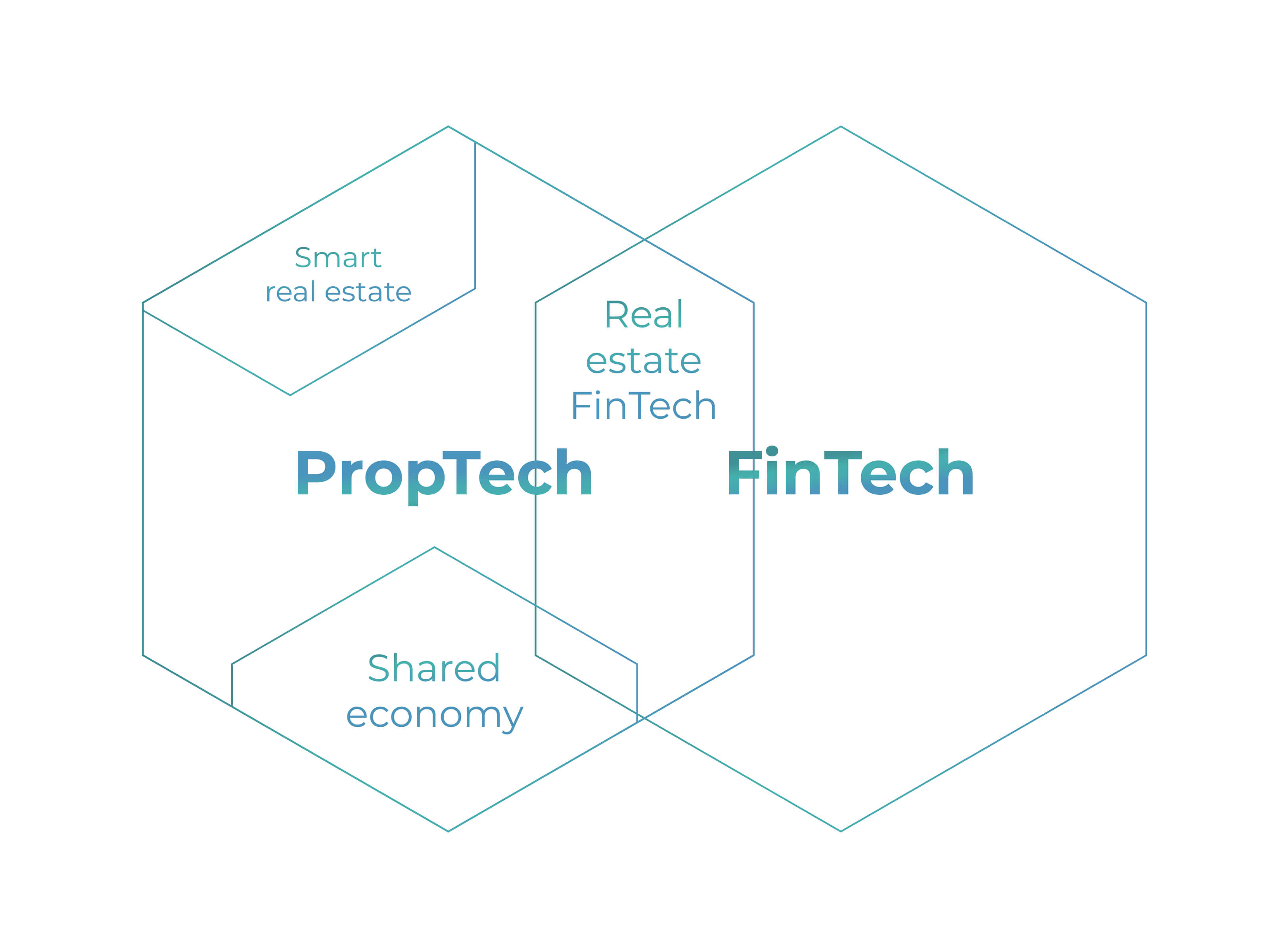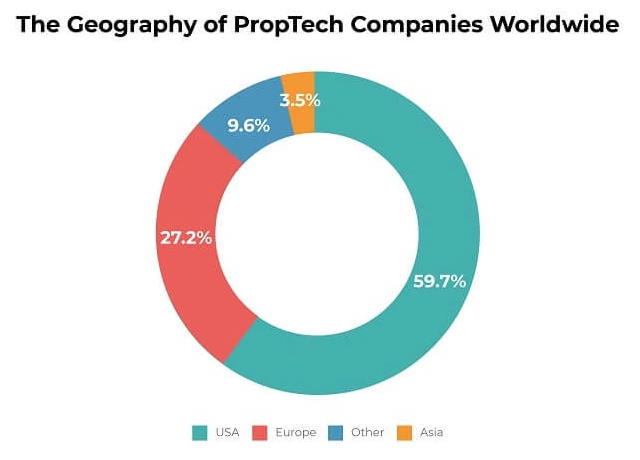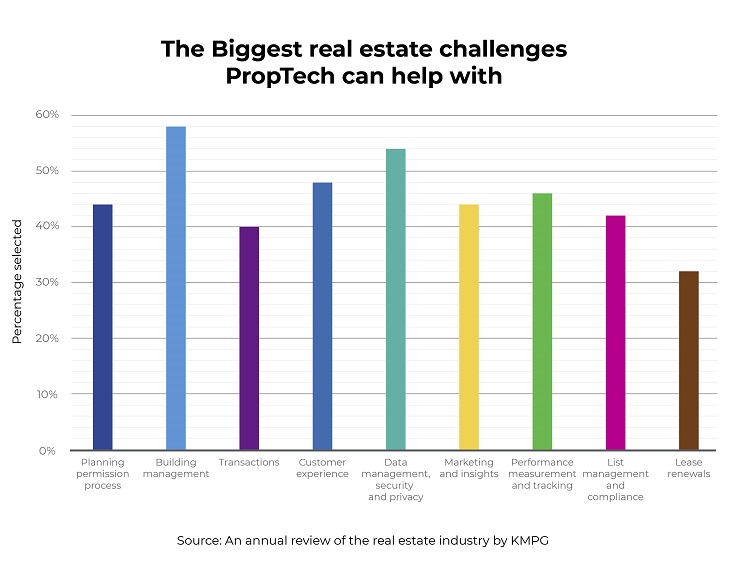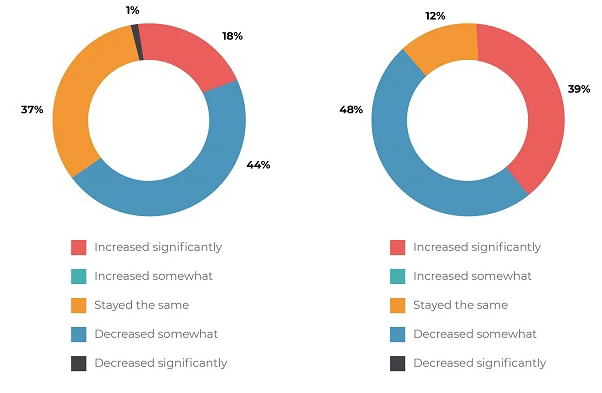View our Guide How to Build a Marketplace in 10 weeks x


Today, technology is the lifeblood of any business, no matter to what industry a company relates. To thrive in these unprecedented times, both international enterprises and small businesses start leveraging tech-enabled innovations. But the crucial point is to introduce cutting-edge technology solutions to startups who can get the most out of tech adoption.
Real estate startups are not an exception. According to NAR (National Association of Realtors), the real estate market is soaring now. It has reached the highest level in the USA since 2006. In 2023, the number of existing-home sales totaled over 5.6. million, with the medium price being about $310 thousand.
So, investing in tech seems quite promising for real estate startups. Let’s have a closer look at how they can capitalize on implementing emerging technologies.
The notion ‘PropTech’ is relatively new to the market. However, it follows the same pattern as such terms as FinTech, EdTech, HealthTech, etc. Each of them represents the robust alignment between tech innovations and their adopters.
The same goes for PropTech, which stands for ‘property’ and ‘technology’. The term is here to highlight the importance of using tech in the industry of commercial real estate. What is PropTech for real estate tech startups? It can refer to business-specific software, like web or mobile apps, provided as real estate software development services.
Unlike large enterprises that tend to stick to ineffective traditional business models, PropTech startups are early movers in this market. To get started with tech real estate implementation, they usually reach out to third-party software service providers for assistance. What is PropTech business looking for in 2024? Often, the required software solutions boil down to specific property CRMs or mobile applications for real estate.
In many ways, PropTech is very much similar to its “elder brother” FinTech. Both are driven by the latest technology innovations headed by Artificial Intelligence (AI) and Machine Learning (ML). While sharing the same technological values, however, PropTech successfully managed to spin-off from FinTech. This move helps better address the needs of the real estate industry. Smart homes and smart buildings have pushed the boundaries of today’s commercial and residential property landscape.

Before going further with 2024 predictions, let’s check how the PropTech market is now globally and locally in the USA.
Speaking geographically, PropTech companies in the USA have the lion’s share, with European PropTech hubs following the leader. Analyzing the global tech real estate market, Deloitte highlights the growing potential for technology disruption in such countries as Israel, with more than 100 proptech startups operating as of 2023. That’s great news for real estate businesses, meaning that PropTech is going places and really worth investing in 2024 and further on.

What is PropTech like in numbers? According to the KPMG Global PropTech Survey, the digitally-driven PropTech industry has made considerable progress over the past several years. Here’re some of the most recent findings of how digital disruption impacts real estate, market players.
Against the backdrop of today’s pandemic restrictions affecting the global real estate market quite negatively, the PropTech has become a helpful tool to overcome the crisis. The world-leading real estate valuators from RICS (The Royal Institution of Chartered Surveyors) are confident that Proptech startups and national real estate organizations can ensure robust PropTech sector development when working together. This process is known as Vertical Integration. It is expected to be a mainstay for the PropTech industry in 2024 and beyond.
At the same time, KPMG, one of the Big Four accounting organizations, provided insights on the startup expectations of PropTech.

The above-shown survey results illustrate quite well that real estate startups have a wide range of pain points to cover with PropTech software solutions.
Speaking solely of the USA, the country has one of the largest and most flourishing PropTech markets worldwide. According to Unissu, the PropTech procurement platform, the number of US-based PropTech (or ReTech, as it’s called in the USA) businesses has already exceeded 2,000 and is still counting.
Here are some fresh stats showing that the PropTech sector in the USA is burgeoning at a remarkable rate:
The expansion of PropTech-driven business activities across the country is heterogeneous. In other words, several technology hubs have the most crucial impact on real estate in the USA. Located in three main cities, namely New York, Boston, and San Francisco, these PropTech centers provide great property insights on such focus areas as construction, buying, selling, renting, moving, and managing real estate assets.

However, the PropTech market in the USA doesn’t limit itself to those areas. On the contrary, it has and exploits its immense potential to broaden its reach nationwide in 2023.
Although having some industry-specific features, the experts have the same technology expectations towards PropTech as other industries like finance, banking, healthcare, or eCommerce. We’ve analyzed the 2024 predictions by a few visionary leaders at Forbes, KPMG, and PwC, to come up with a list of technologies affecting PropTech in 2024.
Since exploring all the tech trends might be the subject of another article, here’s our wrap-up list of 8 main drivers for PropTech growth.
With all that said above, the experts are sure that ignoring the adoption of the latest PropTech trends across organizations can, at the very least, prevent companies from growing their business at full scale. At worst, such reluctance may jeopardize the entire company.
So, if you’re still on the fence about tapping into PropTech, it’s time for a little research on the topic. However, if price is the issue, here’s another guide on real estate web app developing costs to help you figure this out.
The soaring growth rates of the PropTech market worldwide leave no doubt that this economic sector looks quite appetizing for funding and investing. So, it’s no surprise that large market players and venture capitalists get started reaching out to budding proptech startups. They’re looking to maximize their profits while doubling down millions of US dollars on startup projects for real estate.
“The crisis has shown: Those who have digitalized can react better. In a few years, however, the expectation for real estate developers in both the commercial and private sectors will be that digitalization modules will be available just as much as running water and central heating.” -Dr. Marc Gille, CEO OF Thing-IT
Despite the Covid-driven crisis in some industries, the PropTech sector looks quite promising for further development. Real estate software is the tool that helps startups attract new investment resources. Having analyzed the expectation of nearly 1,000 CEOs from real estate service firms, property companies, and investors, PwC revealed that 64% of property businesses invest in proptech startups, this way or another. Comparing the actual PropTech investment and growth rates against estimated figures for 2022, we see the positive industry momentum in the nearest future.

Yet another research by Proptech1 revealed the investment attractiveness of the PropTech sector growing at a 45% CAGR from 2014 until today. In Europe alone. Large investment volumes are the best proof that PropTech is worth considering for large real estate business.
What can real estate companies and proptech startups conclude from all these facts? Let us sum everything up for your convenience:
With all that said, we can assume that software development service providers are the ones who can bridge the gap between proptech startups and real estate incumbents. Technology is key. Not just for tech startups and their customers, but for all the stakeholders – investors, homebuilders, lenders, property companies, you name it. Robust software solutions for real estate are a great asset for their owners, clients, VCs, and partners.
For instance, to make a successful IPO, proptech startups need to realize what investors expect from their projects. To do this, real estate tech startups should have at least an MVP to showcase the investment potential to prospective shareholders. Sure thing, if this is the case of scaling up your business, your real estate app must be already alive and kicking, provide robust functionality and value.
The use cases are numerous. So, check your digital capabilities and stack your real estate mobile or web applications against your competitors’ to make sure you are downright ready for success. If you need to create or upgrade a top-notch software solution for your real estate business, just contact us. The ByteAnt team is here to get you covered.